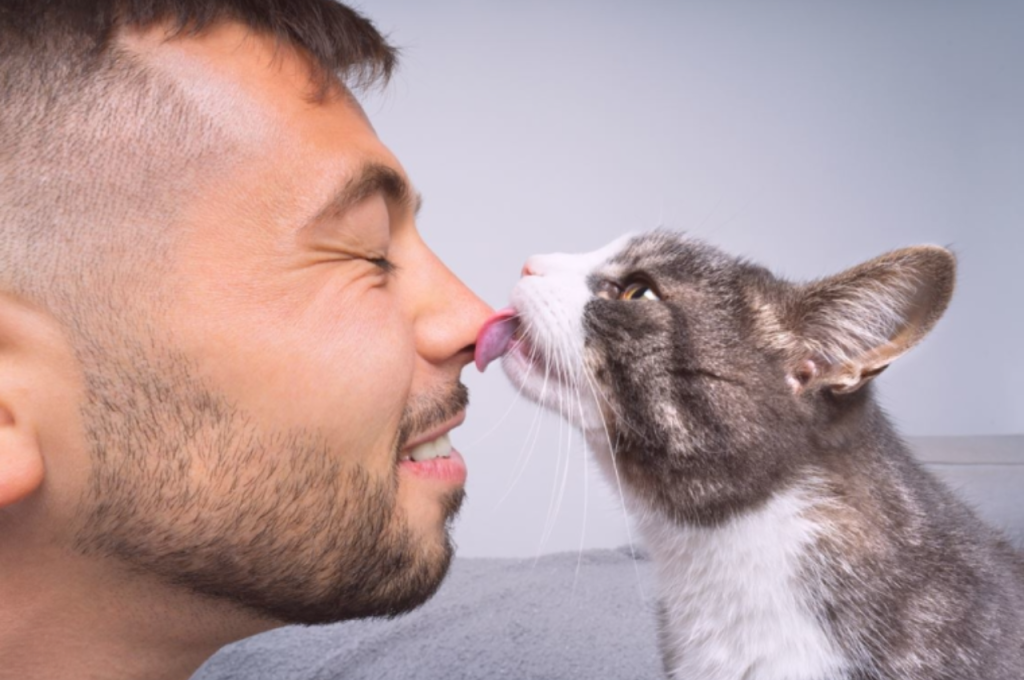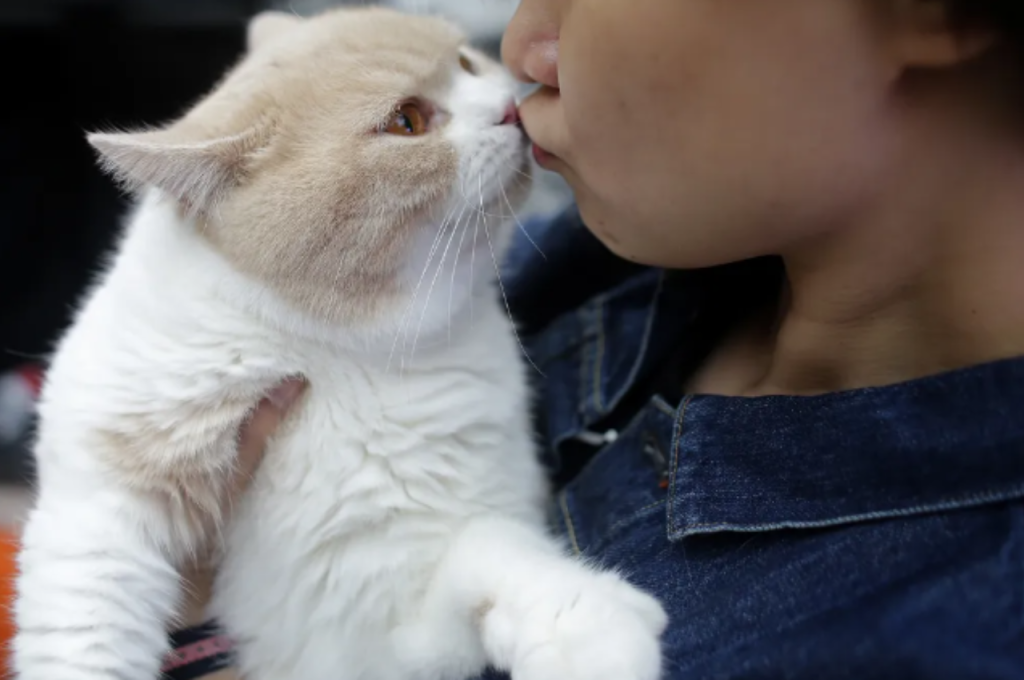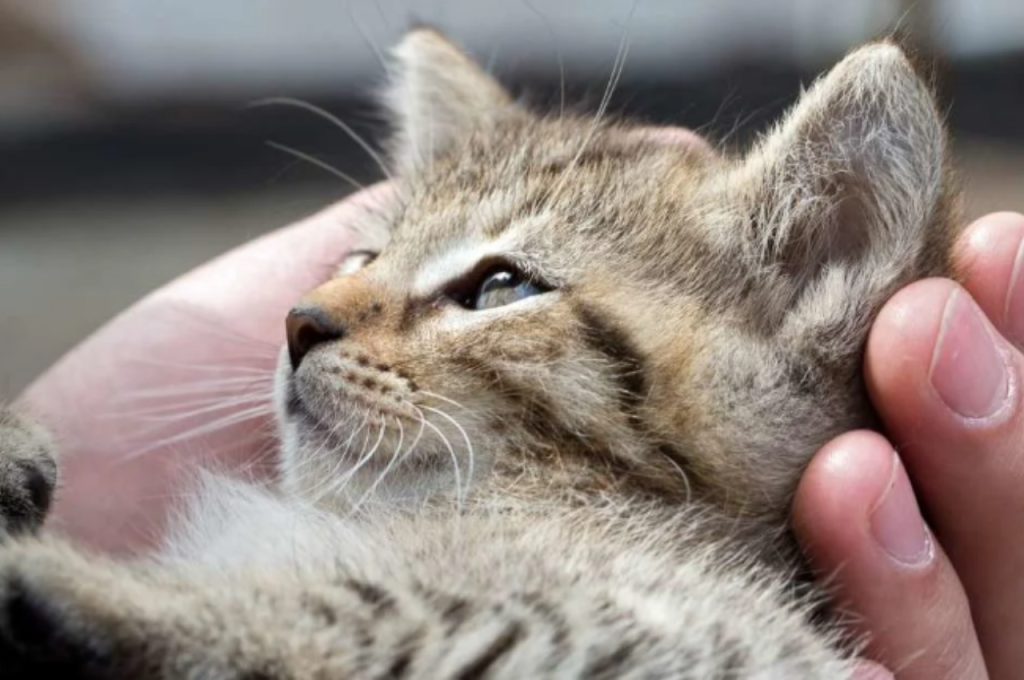Cats may show concern if you cry, as they can sense human emotions through their empathetic nature. Cats have long been regarded as independent and aloof creatures, often seen as indifferent to their owners’ emotions.
However, many cat owners attest to the fact that their feline companions do exhibit signs of concern and attentiveness when they are in distress. While cats may not express their concern in the same way as dogs do, their ability to sense human emotions piques curiosity about whether they genuinely care if their owners cry.
This article will delve into the fascinating world of feline behavior to better understand if cats are truly empathetic creatures or if their reactions to human tears are merely coincidental. So, let’s explore the intricate relationship between cats and human emotions and uncover the truth behind the question, “Do cats care if you cry?”
The Emotional Bond Between Cats and Humans
Cats are known for their mysterious and often aloof behavior, but beneath their seemingly independent exterior lies a deep emotional bond that can develop between cats and humans.

Cats’ Ability to Detect Emotions
Cats have a remarkable ability to sense and respond to emotions in humans, especially when it comes to crying. They may show signs of concern or affection when their owners are upset, indicating a level of emotional understanding.
Mutual Understanding and Empathy
The bond between cats and humans goes beyond simple companionship – it involves mutual understanding and empathy. Through subtle signals and behaviors, cats, and humans can develop a shared emotional connection that enriches their bond.
Cats’ Responses to Human Emotions
Cats are sensitive to human emotions and can understand when we’re upset. They may offer comfort, by purring, cuddling, or simply staying close, showing that they do care if you cry.
Observational Behaviors
When it comes to observing human emotions, cats have a surprisingly keen eye. Their ability to pick up on subtle mood changes is quite remarkable. Cats are intuitive creatures that can sense when their owners are feeling upset or distressed. They may exhibit a variety of behaviors in response to their human emotional state.
| Observed Behaviors | Description |
| Increased vigilance | Cats may become more alert and attentive when their owners are crying. They may closely monitor their human behavior and surroundings. |
| Staying nearby | Cats often have a natural inclination to be close to their owners. When their owners are crying, cats may stay nearby, offering a comforting presence. |
| Quiet observation | During moments of emotional distress, cats may quietly observe their owners from a distance. This behavior allows them to monitor the situation while giving their owners space. |
– Cats are remarkably observant creatures, picking up on subtle human emotions. – They increase their vigilance and stay nearby when their owners cry. – Cats quietly observe their owners during emotional distress, giving them space to process their feelings.
Physical Affection Towards Crying Humans
In addition to their observational behaviors, cats may also demonstrate physical affection towards their crying owners. This can be a surprising and heartwarming response, as cats are often seen as independent and aloof. – Cats provide physical comfort to their crying owners through affectionate gestures. – They may approach their owners with gentle purring or kneading. – Cats offer soft touches and cuddles to provide solace during emotional moments.
Factors Influencing Cats’ Reactions to Human Tears
Cats’ reactions to human tears vary based on their personalities and past experiences. Some cats may show empathy by offering comfort, while others may remain indifferent or even become agitated in response to crying. Understanding your cat’s unique behavior cues can help strengthen the bond between you and your feline companion.
Factors Influencing Cats’ Reactions to Human Tears Past Experiences and Bonding When cats are exposed to a person’s tears, their reactions depend on a variety of factors, including their past experiences and the depth of their bond with the individual. Cats that have been raised in an environment where they receive affection and attention from their human companions may be more inclined to display concern when they witness tears.
Additionally, if a cat has a strong, trusting bond with the human in question, it may be more likely to express empathy and attempt to provide comfort. It’s important to note that every cat’s reaction can vary based on their unique personality traits. Individual Personality Traits of Cats Each feline has its distinct personality, and this can significantly affect their response to human tears. Some cats may possess a more independent nature, leading them to simply observe the situation without exhibiting any compassionate behaviors.
Conversely, other cats may display a more nurturing disposition, offering physical comfort and emotional support to the distressed individual. It’s essential to recognize that a cat’s reaction to tears is shaped by a combination of their past experiences and their specific personality traits. In conclusion, a cat’s reaction to human tears can be influenced by their past experiences, bonding with the person, and individual personality traits. Understanding these factors can provide insight into the varying responses exhibited by cats in emotional situations.
Scientific Insights on Cats’ Emotional Responses
Scientific research on cats’ emotional responses has provided intriguing insights into their behavior towards human emotions, particularly exploring the question of whether cats care if you cry. In this section, we delve into the neuroscientific studies and psychological perspectives that shed light on cats’ emotional awareness and reactions.

Neuroscientific Studies
Neuroscientific studies have unveiled compelling evidence regarding cats’ emotional responses. fMRI scans have shown activity in the amygdala region of cats’ brains when presented with emotionally charged stimuli, indicating their capacity for emotional processing. Furthermore, researchers have observed distinct neuronal patterns suggesting recognition of human emotional cues in cats, supporting the notion that they are attuned to our emotional states.
Psychological Perspectives
From a psychological standpoint, cats’ empathetic behaviors in response to human emotional displays have been a subject of interest. Observational studies have documented instances where cats exhibit comforting behaviors towards distressed individuals, indicating a level of emotional sensitivity. This aligns with the idea that cats may possess a degree of emotional intelligence and awareness, contributing to their potential responsiveness to human tears and distress.
Case Studies and Anecdotes
When it comes to understanding the emotional connection between humans and their feline companions, there’s nothing quite as compelling as real-life case studies and anecdotes. Heartwarming stories and personal experiences shared by cat owners not only shed light on the question of whether cats care if you cry but also showcase the compassion and empathy that these animals can display.
Heartwarming Stories
Countless heartwarming stories have emerged over the years, highlighting the remarkable bond between cats and humans. One such story involves a cat named Whiskers, who sensed her owner’s distress during a particularly difficult time. Whenever the owner would break down in tears, Whiskers would immediately jump onto their lap and gently rub against them, seeking to provide comfort and solace.
In another heartwarming instance, a cat named Oliver demonstrated his care when his owner got in a car accident. Despite the chaos and confusion, Oliver managed to escape from the wreckage and remained by their side until help arrived. This act of loyalty not only showcased Oliver’s concern for his owner’s well-being but also demonstrated how cats can intuitively sense when something is wrong.
Personal Experiences Shared By Cat Owners
Every individual cat has unique characteristics and behaviors, making it fascinating to explore the personal experiences shared by cat owners. One such owner, Sarah, recalls how her cat, Luna, would react whenever she cried. Instead of shying away or retreating, Luna would stay close by, purring and gently nudging Sarah’s hand as if trying to console her.
Similarly, another cat owner, Mark, shares his touching experience with his cat, Max. Whenever Mark felt overwhelmed with emotions, Max would curl up beside him, emitting soothing purrs that instantly brought him comfort. Mark believes that his cat’s presence and affectionate gestures helped alleviate his stress and sadness.
These personal experiences reinforce the idea that cats can indeed care if you cry. They demonstrate that cats possess a profound ability to sense human emotions and offer support in their unique ways. Whether it’s through comforting physical contact, soothing purrs, or simply being present, cats have shown time and again that they can be compassionate companions during times of distress.
Cultural Perspectives on Cats and Emotions
Do cats care if you cry? Understanding the emotional connection between cats and humans leads us to explore the cultural perspectives on how cats perceive and respond to our emotions.
Historical Beliefs and Myths
Cats have been intertwined with human history, with diverse beliefs and myths surrounding their connection to emotions. Ancient civilizations revered cats for their mystical powers and ability to sense human emotions.
Modern Cultural Representations
In today’s society, cats are often portrayed as emotionally intuitive creatures in movies and literature. They are depicted as companions who can sense and comfort their owners in times of distress, making them seem almost empathetic towards human emotions.
Building A Strong Emotional Connection with Your Cat
Cats can be sensitive creatures who may respond to your emotions. Developing a deep bond with your cat involves Understanding communication and engaging in bonding activities. Creating a safe and nurturing environment is key to fostering emotional connections with your feline friend.
Communication and Bonding Activities
Communication with your cat includes verbal cues, body language, and bonding activities.
- Speak to your cat calmly and use a gentle touch for bonding.
- Engage in playtime and grooming to strengthen your connection.
Creating A Safe and Nurturing Environment
Ensuring your cat feels safe and loved deepens the emotional bonds between you.
- Provide a comfortable sleeping area and hiding spots for a sense of security.
- Keep the environment clean, offer nutritious food, and allow for exploration.
The Reciprocal Benefits of Emotional Connection With Cats
Emotional bonds between humans and cats go beyond simple companionship. The reciprocal benefits of this connection are far-reaching, impacting emotional support, stress relief, and overall well-being for both parties involved.
Emotional Support and Stress Relief
Cats possess a remarkable ability to provide emotional support to their human companions. When you’re feeling down or overwhelmed, cats are often intuitively drawn to offer comfort, whether through gentle purring, cuddling, or offering a comforting presence. This emotional connection can be particularly valuable during times of emotional distress or loneliness.
Enhanced Well-being for Both Humans and Felines
The positive impact of an emotional connection with cats extends beyond the human side of the bond. Interacting with humans in a deep and meaningful way can also contribute to the well-being of our feline friends. By responding to human emotions, cats often experience a sense of fulfillment and purpose, which can lead to greater contentment and a calmer disposition.

Frequently Asked Questions for Do Cats Care If You Cry?
Certainly! There is a FAQ section for this blog:
1. Do cats have empathy for their owners?
Yes, cats can sense human emotions and often show empathy towards their owners. They may try to comfort you by nuzzling or purring when you’re upset or crying.
2. Can crying affect your cat’s behavior?
Yes, cats can be sensitive to the distress of their owners. Your emotional state can affect your cat’s behavior, making them more attentive and affectionate towards you when they sense that you’re upset.
3. Why do cats react when their owners cry?
Cats are observant animals and can pick up on changes in their owner’s behavior, including crying. They may respond to your tears with concern or empathy, seeking to provide comfort and support.
Conclusion
Cats have a unique ability to sense emotions, including crying. They may not fully understand our tears, but they can pick up on our distress. Their reactions vary, from offering comfort to keeping their distance. Understanding that cats do care, in their way, creates a deeper bond between humans and feline companions.
So, next time you’re feeling down, don’t be surprised if your furry friend is there to offer some much-needed support. Trust the intuition of your cat, they may just be trying to comfort you in their special way.
